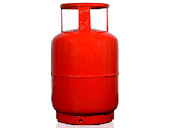Things to know about Venezuela
The Economics, Culture, and Politics of Oil in Venezuela
Sourced from www.venezuelanalysis.com
Perhaps the most important thing to know about Venezuela is that it is an oil exporting country, the fifth largest in the world, with the largest reserves of conventional oil (light and heavy crude) in the western hemisphere and the largest reserves of non-conventional oil (extra-heavy crude) in the world. This fact is of immense importance to understanding Venezuela because it has shaped practically every aspect of the country, its history, its economy, its politics, and its culture.
Oil industry history
Venezuela's oil industry history can be roughly divided into four periods: the discovery and initial production of oil (1912-1943), Venezuela's assertion of control over the oil industry (1943-1974), the oil boom and nationalization of the oil industry (1974-1998), and the government's attempt to regain control over an increasingly independent oil industry (1999-2003).
Birth of the Petro-State (1912-1943)
Venezuela has had abundant supplies of oil was since pre-colombian times, when the indigenous peoples of Venezuela made use of oil and asphalt, which seeped to the surface, for medicinal and other practical purposes. However, it was not until 1912 that the first oil well was drilled. Shortly thereafter, first Royal Dutch Shell and then Rockefeller's Standard Oil became major producers of oil in Venezuela. Within a few years, by 1929, Venezuela was the world's second largest oil producer, after the U.S., and the world's largest oil exporter. Between 1920 and 1935 oil's share of exports went from 1.9% to 91.2%.This, of course, had an immediate and dramatic impact on the country's economy, known among economists as "The Dutch Disease". The most important consequence of the "Dutch Disease," was that agricultural production declined to almost nothing and the country fell behind in industrializing, relative to other Latin American countries.
Strengthening of the Petro-State (1943-1973)
In 1943 Venezuela passed a vast reform of its oil policy with the Hydrocarbons Act, which tied the Venezuelan state's income even more tightly to the extraction of oil. The law established that the foreign companies could not make greater profits from oil than they paid to the Venezuelan state. The continually increasing oil income led to an ever increasing reliance of the state on this source of income in lieu of individual income taxes. By the 1950's, however, the world oil industry began to feel the effects of the over-supply of oil, especially following the increased production of oil in the Middle East and the imposition of import quotas in the U.S. The consequence was a chronically low price of oil. So as to combat this problem, in 1960, the world's main oil exporting countries, largely due to the prodding of the Venezuelan government, decided to form the Organization of Petroleum Exporting Countries (OPEC). Also in 1960, Venezuela created the Venezuelan Oil Corporation, which later formed the basis for the nationalization of Venezuela's oil industry.




